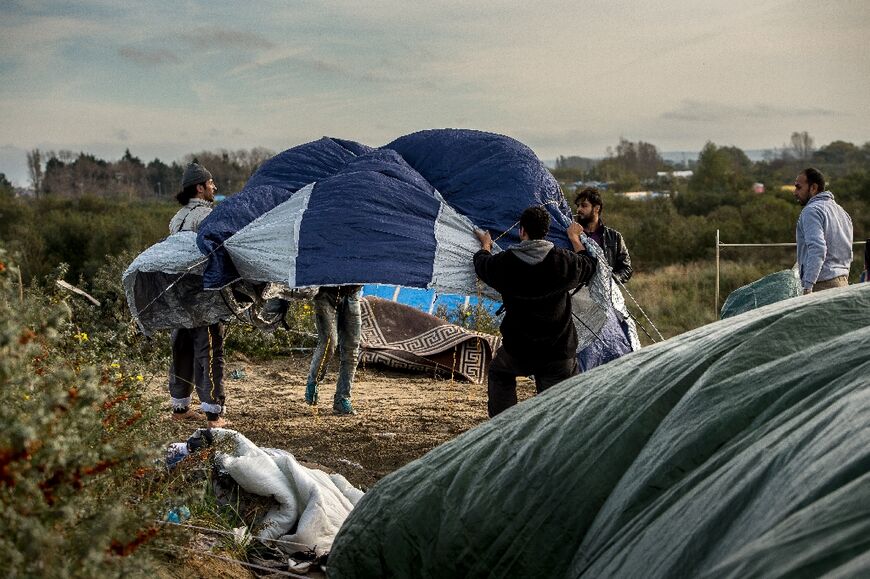Syria migrants eye 'peace' in Britain even after Assad's fall

Wrapped up against the cold in northern France, Syrian migrant Ali said that while he was delighted president Bashar al-Assad had been toppled, he was still determined to cross the sea to England.
"I was happy when Bashar al-Assad left, he's a criminal," he said near the tent where he spent a bitter night in the port city of Calais.
"Nobody wanted him in power anymore," said the 23-year-old, who did not give his surname for his safety.
"But the situation in Syria remains confused and the general atmosphere is chaotic," he added.
Islamist group Hayat Tahrir al-Sham (HTS) and its allies swept into the capital Damascus this weekend, ending more than five decades of brutal rule by the Assad family.
The government fell more than 13 years after Assad's crackdown on anti-government protests ignited Syria's civil war, killing more than half a million people and forcing half the country to flee their homes, many abroad.
Syria's new transitional prime minister has called for Syrians abroad to return to their homeland to help rebuild it, while Britain and other European countries have rushed to freeze all pending asylum requests from Syrians.
But Ali, who hails from the Syrian region of Daraa that in 2011 was the first to rise up against Assad and has been hoping to cross the Channel for two months, was undeterred.
"It's very bad news, but it won't stop us," he insisted. "We want to continue to go to England because we're looking for peace."
But, he added: "If the situation improves in Syria, we'll go back.
"Everyone dreams of going home, but for now, the situation remains too uncertain, the leaders come from a background linked to terrorism."
HTS, which led the rebels that ousted Assad, have promised to protect minorities and respect people's rights.
But it has its roots in the Syrian branch of Al-Qaeda and Western governments have proscribed it as a "terrorist" organisation.
- 'A future' -
Another Syrian, 32-year-old Fares, also wondered how the rebels would govern. He, too, refused to give his second name.
"No one knows what will happen now in Syria," he said.
"What are the cultural foundations of those who are now in power? We don't know."
But "in Britain, we can offer ourselves and our children a future. There is work, there is peace, there is everything we need," he said.
The United Kingdom has sought to stem migrant arrivals via the Channel in recent years.
Nearly 34,000 migrants of different nationalities have landed in Britain on overcrowded dinghies since January, and at least 70 people have died attempting the perilous crossing, the deadliest year on record.
But the country has granted thousands of Syrians asylum since the civil war erupted 2011.
Between 2011 and 2021, nearly 31,000 Syrians obtained asylum in the United Kingdom, according to the UK House of Commons.
In 2023, just over 3,000 Syrians sought asylum in the United Kingdom, according to the Home Office.
Even with decisions on claims now paused for Syrians, Fares said he had no other option.
"We are relieved that Bashar al-Assad is gone, but there is no stability or security in Syria at the moment," Fares said.
"What's more, Israel is striking the country," he added.
Israel said Tuesday it has conducted about 480 strikes in 48 hours on military targets in Syria.






